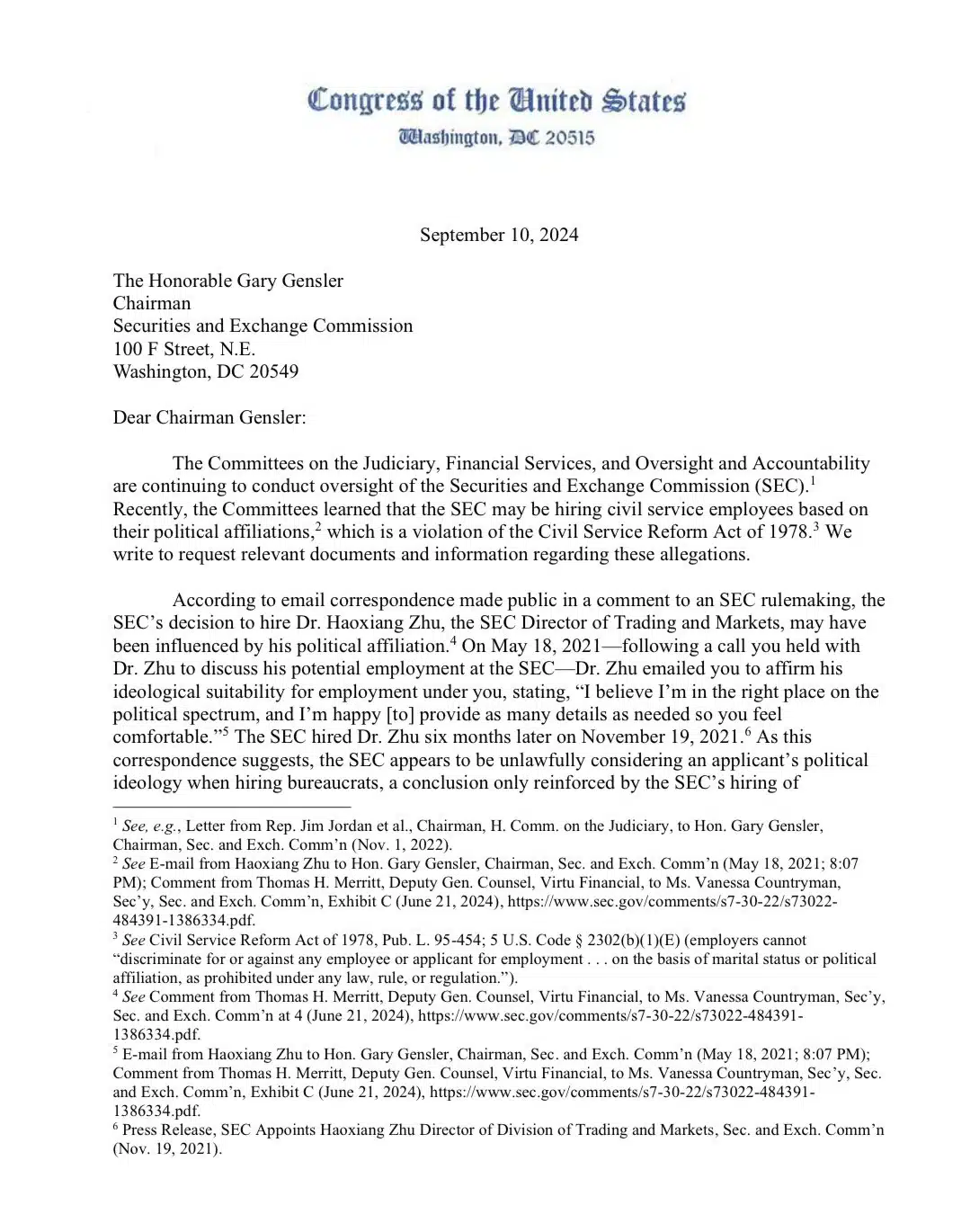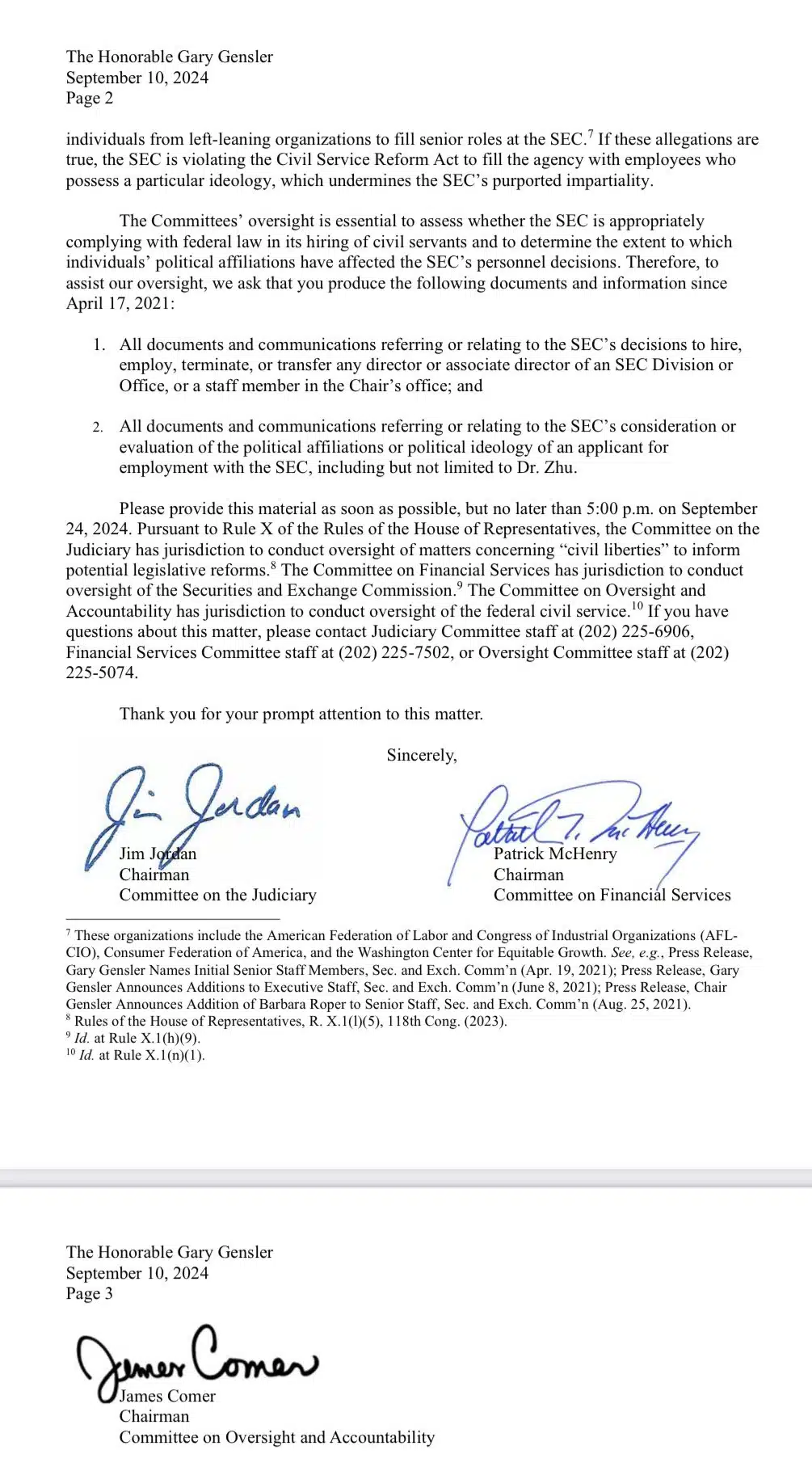Gary Gensler, the chairman of the Securities and Exchange Commission, is facing criticism for his personnel decisions at the regulatory agency
In response to allegations that political affiliations influenced recruitment, Republican legislators have initiated an inquiry into the U.S. Securities and Exchange Commission (SEC) hiring practices under Gary Gensler.
The inquiry was initiated under the Civil Service Reform Act of 1978 by the Committees on Judiciary, Financial Services, and Oversight and Accountability, according to a letter signed by Republican legislators Patrick McHenry, James Comer, and Jim Jordan.

Recently, the Committees learned that the SEC may be hiring civil service employees based on their political affiliations. We write to request relevant documents and information regarding these allegations. Letter notifying SEC on hiring investigation
The documents requested by the trio of U.S. Representatives pertain to considering SEC applicants, employment, termination, and staff transfers. The SEC has until 5 p.m. ET on Sept. 24 to oblige, as stated in the letter.


The Securities and Exchange Commission (SEC) is currently experiencing significant pressure at the cost of cryptocurrency fines.
The document dealt Gensler an additional setback during his tenure as SEC chair.
Additionally, Gensler has been accused of ambiguous practices by digital asset industry stakeholders and pro-crypto legislators.
Gensler and the SEC have developed an enforcement-first regulatory strategy, per the web3 community.
Some have even contended that the agency lacks constitutional authority to regulate cryptocurrency. Ryan Selkis’ successor at Messari, Eric Turner, expressed dissatisfaction with the regulator’s $1.5 million compromise with eToro.

Crypto regulations have become a persistent concern in Washington and other U.S. jurisdictions. Despite the White House’s opposition, the Financial Innovation and Technology for the 21st Century Act, a bipartisan resolution, was successfully passed by the House of Representatives.
The Commodity Futures Trading Commission would be responsible for a significant portion of cryptocurrency supervision if the U.S. Senate approves the legislation. FIT 21 subjects digital asset exchanges such as Binance and Coinbase to the jurisdiction of the CFTC.



